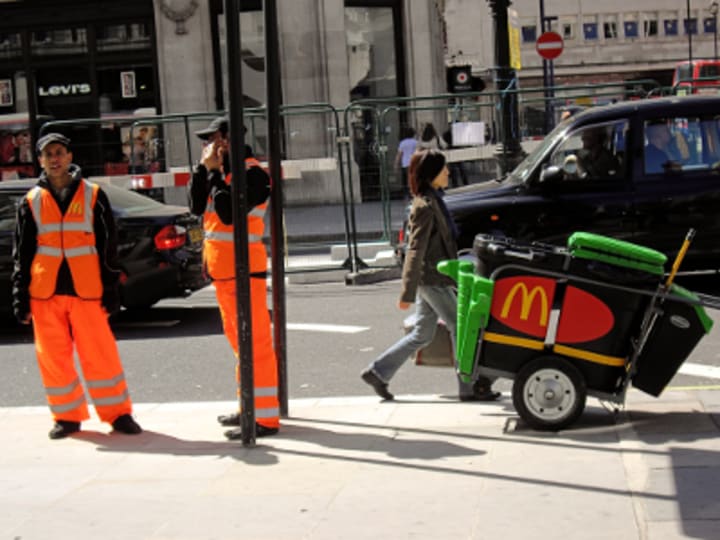
As a kid, I thought it was a treat to go to McDonald’s and get a Happy Meal. My favorite was chicken nuggets, and in the back of my parents’ 1975 station wagon, I would enjoy my little meal and the toy that came with it, content until something else grabbed my attention or appetite.
As I grew, so did the options I craved. I began to prefer the restaurant chain’s top-selling meal: The Extra Value Meal. Wow, what a deal – my favorite items packaged together, large enough to satisfy my more mature age and growing appetite. And that deal is good for McDonald’s, too, yielding greater returns for the business than my previously selected kid’s meal.
Today, you could say that McDonald’s and I both benefit from the Extra Value Meal. But my transition from Happy Meal to Extra Value Meal took time, maturity and experience. In a way, it mirrors the latest trends in corporate social responsibility. Let’s take a closer look:
FSG and Harvard University have propelled “shared value” to a topic of international conversation in the corporate world. The role of business in society is changing – with or without the permission of companies. It is due to our more mature outlook and experiences.
More than ever, the private sector’s role in addressing societal challenges is not focused on fleeting satiation – smaller sums of money handed out for smaller returns. This was the traditional “checkbook philanthropy” model.
We now care a lot about things like achieving greater value and presenting the best we have to offer in return for higher impact and satisfaction.
While you probably only buy one meal at a time, there’s no reason to choose only one way of engaging in societal challenges. There is room for checkbook philanthropy coupled with the shared value model. For example, in times of disaster, cash is king and traditional donations to NGOs on the ground are the most effective way to help save lives. Additionally, NGOs will continue to be in need of funds for general operating costs, and the public and multilateral institutions cannot be held solely responsible for funding these operations.
I still enjoy a nice Happy Meal every once in a while, but it is not what delivers the most value to me (I am usually still hungry!). The profits generated by McDonald’s from this purchase remain lower than alternative meal choices.
In international development, to what degree do we still choose Happy Meals over Extra Value Meals? To what extent should checkbook philanthropy be a component of our business organizations? What will be the Extra Value tipping point to get to the shared value model?
These questions will be front-and-center at an upcoming international gathering in Washington entitled “Adding Value in Emerging Markets and Local Communities.” Devex is a proud media sponsor of this event, hosted by the U.S. Chamber of Commerce’s Business Civic Leadership Center Oct. 5-6.
Join us there, and meanwhile, feel free to head to your closest McDonald’s for some food.
